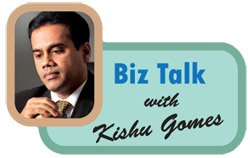Art of following role models - What really matters
 A role model is a person who others look up to and admire and aspire
to be. A role model naturally provides inspiration and motivation to
seek out bigger and more optimistic accomplishments. A role model is a person who others look up to and admire and aspire
to be. A role model naturally provides inspiration and motivation to
seek out bigger and more optimistic accomplishments.
Role models usually send out messages about their beliefs and
attitudes by what they do and say and how they conduct themselves. There
is an increased trend in following role models which has become a
fashion for many, a passion for the younger generation and obsession for
some others.
From schoolchildren to top CEOs, all have role models they follow.
It's not limited to a particular area. Role models are there in every
category of performers from singers to athletes and from farmers to
politicians. Can one actually copy another person and be equally
successful?
Sounds logical but how practical is it?
This logic of following role models sounds appealing and meaningful.
Duplicating success or following the footsteps of a successful leader
may seem like a good idea, but the reasons people succeed are often not
clear from just observing or measuring the characteristics of top
performers from outside.
The environment and circumstances under which super performers or
today's role models have become successful cannot be easily understood
by another person and in some cases, the achiever himself may not really
understand and explain how and under what conditions the results have
been achieved. In my view, to duplicate successfully all external
factors should be constant and the follower's knowledge and behavioural
attributes should be identical and the opportunity should be the same or
similar. How real is this in the dynamic world with very frequent
dramatic changes?
Follow not the model but the traits
No doubt that each role model has his or her unique characteristics
and mix of skills and talents others can emulate. Understanding and
following these traits make sense.
There are skills that can be applied to any situation to accomplish
goals. After all good role models are people who have achieved
excellence in life under difficult conditions. One common trait you
would see in super achievers is doing things differently. It's the
difference that makes the difference - difference in vision, attitude,
focus, commitment and hard work. Aren't these qualities you anyway knew
and always wanted to develop? Success begins in the mind.
If you think and believe you can win you will. But this mental status
should be supported with the said traits and learning and practising
these unique or extraordinary traits add a new dimension to thinking and
performing tasks.
Being human means having to constantly deal with stress and overcome
obstacles.
A role model sets a good example on how to handle pressure. Role
models can handle stress and come out successful more frequently than
others when the pressure is on. While they may not win every time, when
they fail they attempt to learn from their mistakes and do it better the
next time. Perseverance is a key trait. Role models demonstrate that if
you work hard to attain something, you actually can. They give you
dreams and help set optimistic goals to aspire.
Learning from others is an art
When you read biographies and autobiographies of your role model
understand the environmental challenges faced and traits heavily used to
achieve the outcome rather than the outcome itself.
This will provide a broader understanding of why they do it and what
they do.
We look to role models as examples of how to act when performing a
particular role.
Though anyone can have a role model and most people do, children and
executives are especially eager to follow another's example, although
not always able to imagine the consequences that may follow. Learn from
your role models by following their lead and understanding what
motivates them fallen again the traits and not the individual.
Imitate what your role model does NOT do her non-actions. For
example, if your employee role model does not attend after work happy
hours with co-workers, do not attend them either.
Look for more than one role model and compare and understand
similarities and differences between the two.
This will help you understand the motivation behind each one- decide
what is closer to you so that it will come to you naturally.
There is always more than one way to achieve the same result. More
aligned the trait is, greater the rate of success.
You like to know what I do? I do not follow an individual as such but
follow the good traits of anyone whom I can learn something better from.
I let go of my old traits and embrace the new to keep evolving and to
do better. I have learned from many people and from each one I have
learnt a different thing.
I never wanted to be a copy of someone or achieve someone else's
level of success.
I do set goals covering many aspects in life and achieve some and
fail in some, but I won't give up. I learn from every activity I do
daily and continuously try to do better.
|

